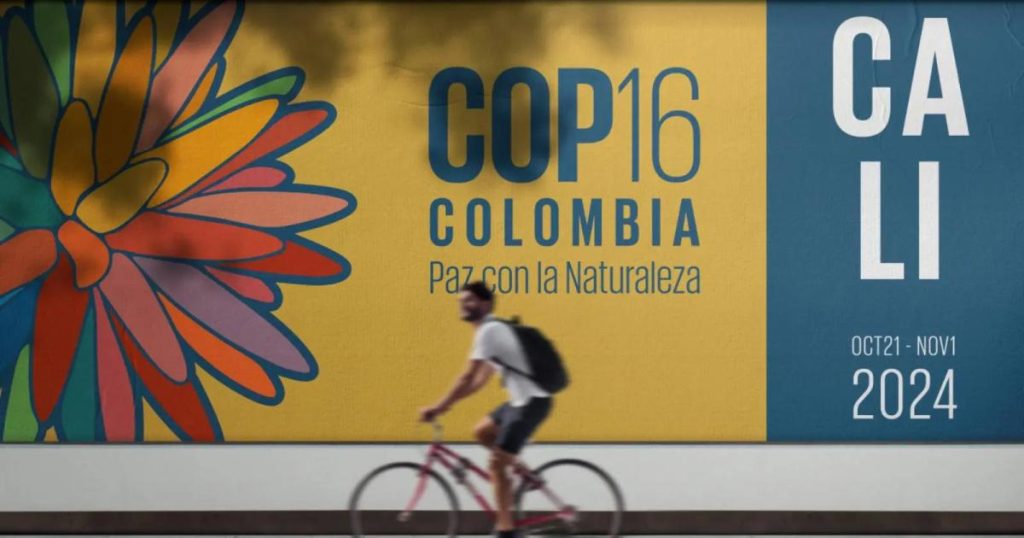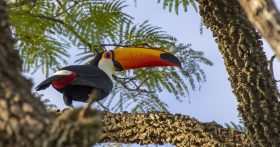Biodiversity fund COP16 row
4 min read
However, analysis by Survival International of the 22 projects approved by the GEF so far has found that it falls “grievously” short of these promises.
Only one will likely benefit indigenous people, it concluded. This project was proposed by the Brazilian government, and represents around seven per cent ($8 million) of the total so far approved by the fund.
Consent?
All the other projects claim to allocate money to IPLCs. If they did, this would total nearly 40 per cent of the total allocated, it said. However, none of the other 21 programmes contain any actual budgetary provision for work with indigenous people, and only seven include work with other local communities, it added.
Furthermore, the NGO accused the GEF of failing to ensure that indigenous peoples have been properly consulted on plans. Under international law, indigenous people have a right to what is known as Free, Prior and Informed Consent (FPIC). However, proper FPIC is missing in all the projects approved by the GBFF, it said.
In addition, nearly half the funding is going towards projects that involve ecosystem restoration and the so-called 30×30 target, under which countries agreed to increase the extent of protected areas to 30 percent of the earth’s land and seas by 2030.
Survival International and other indigenous rights groups have long opposed the 30×30 target, as they fear that it will intensify atrocities against indigenous peoples such as the eviction of thousands of Maasai people from the Ngorongoro Conservation Area in Tanzania.
The GBFF funds are channelled through 18 formally approved organisations working as ‘agencies’ for the GEF. These include large international conservation organisations such as WWF and Conservation International, and UN agencies including the UN Development Programme and UN Food and Agriculture Organisation.
They are also responsible for supporting countries to meet GEF social and environmental safeguards, working with government bodies or local conservation organisations.
Together, these organisations will earn $9 million in agency fees for submitting and managing the projects, according to Survival International.
Scrapped
Survival International wants the GBFF to be scrapped, and a new process set up whereby funding is primarily directed to IPLCs, and to initiatives aimed at recognising and protecting their land rights. These would also be much cheaper than “the expensive, colonialist, top-down, militarised approach” of the conservation industry, it said.
Simon Counsell, consultant to Survival International and former head of Rainforest Foundation UK, said: “This fund desperately needs major reconsideration going forward.
“Rather than being a transformational type of fund with a new approach, the GBFF is simply reinforcing the old top-down fortress conservation model that we’ve seen acting against local communities and indigenous people for decades.
“Sadly, it’s not doing much or anything to tackle the underlying drivers of biodiversity loss such as overconsumption and subsidies to destructive industries.”
Safeguards
A WWF spokesperson said that it was working with governments in Brazil, Gabon, Peru, South Africa, Cameroon, Central African Republic and the Republic of the Congo, working as an agency of the GEF to allocate funding to projects.
“In each project WWF has worked with, and will continue to work with, project partners to ensure that Indigenous Peoples and local communities are included in the development of projects, and that project funds flow to them through direct subgrants or by receiving support in the form of technical assistance and resources. Both WWF and the GEF require all projects that could impact Indigenous Peoples to go through an FPIC process.”
In a statement, Conservation International said: “We respectfully disagree with Survival International’s findings and their characterisation of Conservation International.”
It reviews every project to ensure alignment with GEF policies, and the projects under the GBFF have completed an Environmental and Social Safeguards Screening, it said.
Its GBFF-funded project in Mexico has an indigenous people’s plan with a budget to ensure that the principles of FPIC are adhered to. It started consultations in March 2024, and these will continue. More than 70 per cent of the funds allocated to the Mexico project will benefit IPLCs.
“These communities will play an active role in guiding the use of these funds, ensuring that resources are directed according to their priorities and needs specifically. The project will engage Indigenous Peoples, local communities, and other stakeholders in an inclusive and participatory process.”
In a statement, the GEF said that the target for 20 per cent of the GBFF to go to indigenous peoples includes agency fees. Of the funds allocated so far, 35 per cent support actions by IPLCs, they said.
“Each project is requested to provide the amount of GBFF project financing it is allocating to support actions by IPLCs. Only GBFF financing that is either directly managed by IPLCs or correspond to activities for which the design and management have been led by IPLCs can be included in this amount,” it said.
Independent evaluators also check the amounts spent, both mid-way through the project at when it is completed. The GEF’s environmental and social safeguards were developed with guidance from GEF Indigenous People’s Advisory Group and other experts, it added.
This Author
Catherine Early is a freelance environmental journalist and chief reporter for the Ecologist. She tweets at @Cat_Early76.





